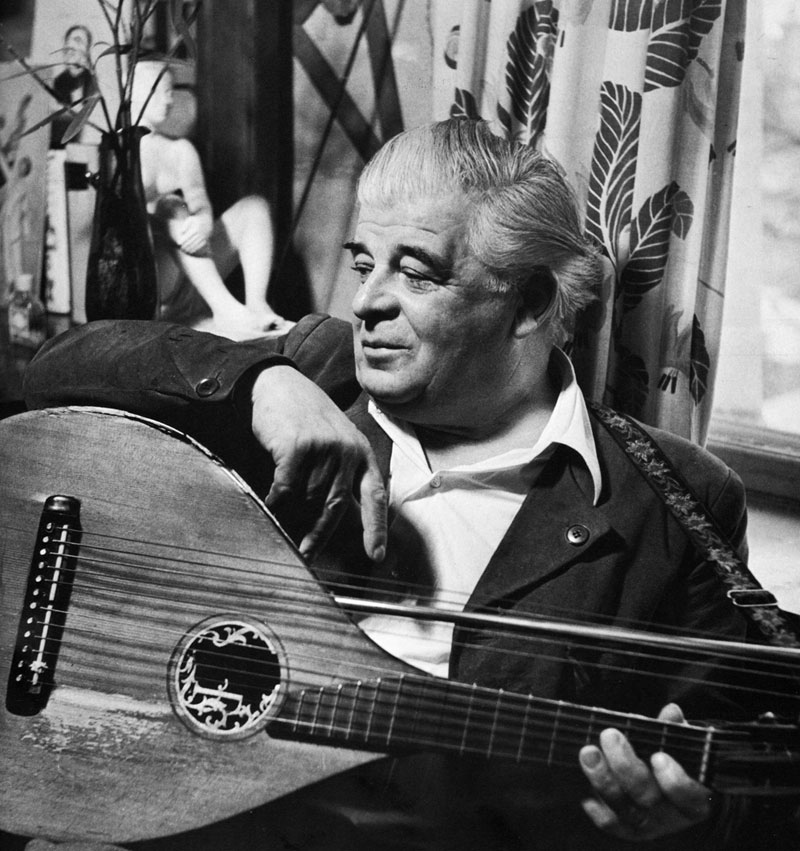Evert Axel Taube (1890-1976)
Evert Taube, Swedish ballad singer, composer, author and artist, made his greatest impact as a ballad composer and balladeer, enriching his work with painterly skill depicting Swedish nature, particularly Stockholm’s archipelago.

Taube was born in Gothenburg, Sweden, and grew up on the country’s west coast. After trying to study art in Stockholm against his father’s wishes, he sailed around the world, settling in Argentina for five years (1910-1915), where he learned to play guitar and speak Spanish and Italian. He then returned to Sweden, where he published his first ballad in 1917 and his first book, the collection of novellas Inte precis om kvinnorna (1918) (Not exactly about women). This launched his career as an author of books and especially of ballads that drew on his previous travels.
Not surprisingly given his background, he started with sailors’ ballads (including those from the point of view of Taube’s alter ego Fritiof Andersson), and throughout his career focused on recurrent themes of love, nature, and the sea. He then moved on to Carl Michael Bellman’s tradition, which he would continue to expand. Taube’s Calle Schwenens vals (Calle Schwenen’s waltz) in 1931 was hugely successful and his first major national breakthrough. The song was often played on the radio and sung at parties, and Taube earned the moniker of ’Swedish national poet’. He rose further in prominence in the 1940s, for example via his new and more mature alter ego Rönnerdahl.
In the 1950s he expanded his repertoire and style into medieval Provençal and Renaissance Italy. His work evokes an international aura, due partly to his earlier foreign journeys and other trips he made throughout his life to far-flung locales. Around this time, he also began to earn many prizes, including the Bellman Prize of the Swedish Academy (1960) and honorary doctorates.
From 1961 to 1973 Taube delighted dedicated fans at an amusement park in Stockholm. However, some people today object to his ballads’ attitude toward women. His youngest son, Sven-Bertil, continues the ballad tradition.
Further reading:
- E. Taube, I come from a raging sea, trans. and ed. By P. Austin, (London: Peter Owen, 1967).
Links:
- Dutch-Swedish songwriter Cornelis Vreeswijk